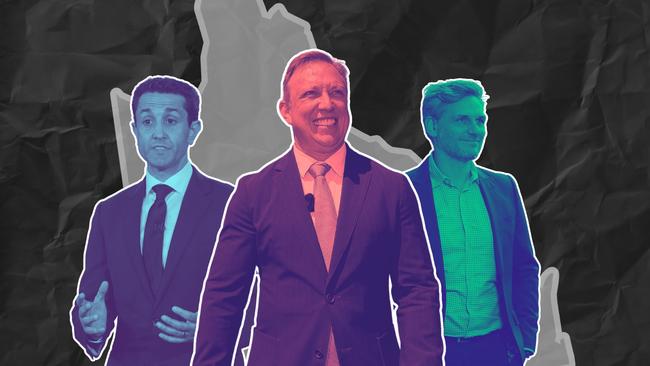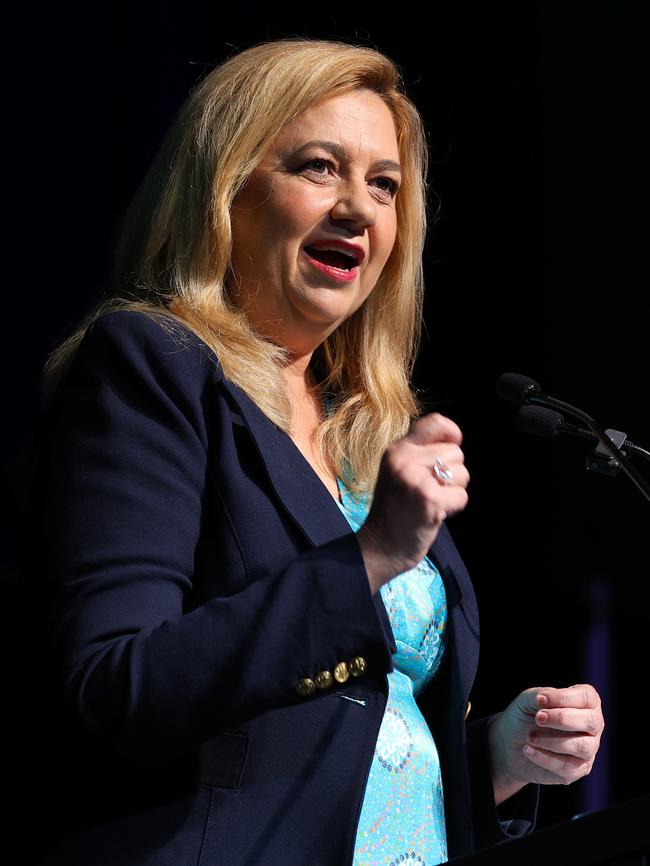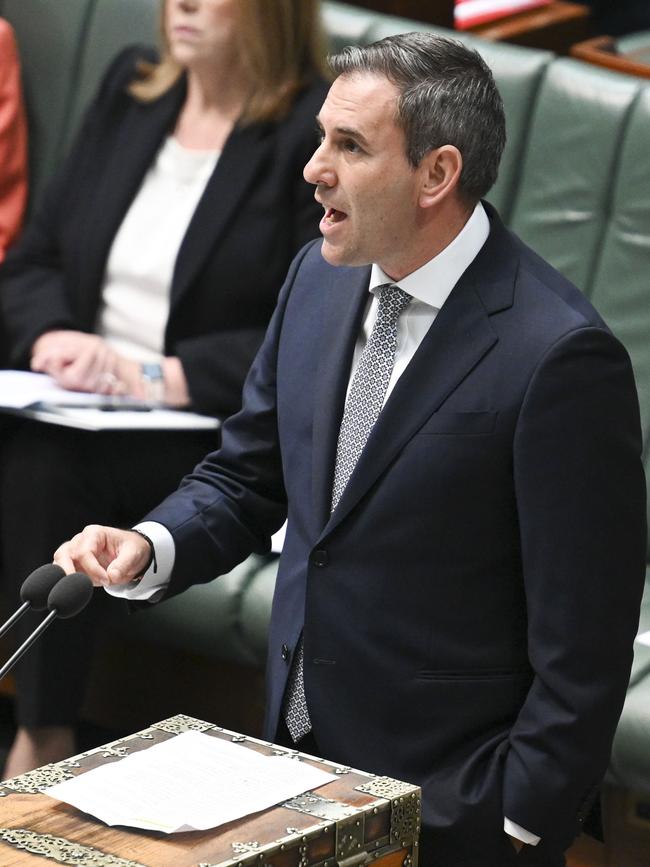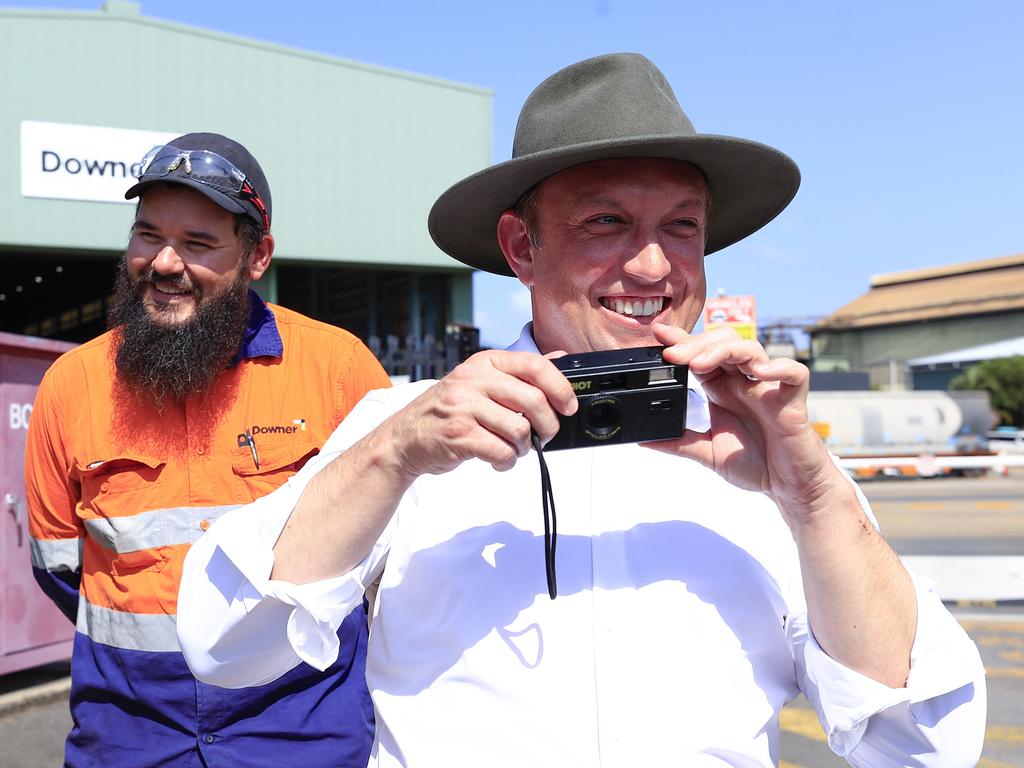If Victoria is the nation’s economic basket case, Queensland is not far behind
Queensland now rivals Victoria as a hot-bed of shady government dealings, where a ruling clique of ministers, staffers and paid lobbyists further their private interests with little or no oversight.

Despite its importance, many Australians regard Queensland as different from the rest of the country. It is our deep north – sprawling, exotic and to some extent unfathomable – even if, in its southeast corner, it is highly urbanised. Queensland, perhaps more than any other state, still has a frontier feel and mentality. A touch of wildness, even. It is the birthplace of the Australian Labor Party and has a long tradition of trade union radicalism, but is also the home of populist conservatism, including One Nation.
State patriotism remains strong. When Annastacia Palaszczuk, with the overwhelming support of the Queensland public, brutally closed the border with NSW during the pandemic, she was playing on this special brand of patriotism.
This came as no surprise to those who know their Queensland history. In fact, more than a century ago, her predecessor did exactly the same thing when the Spanish flu hit.
But perhaps Queensland is more like the rest of the country than we realise. If Victoria is the nation’s governance and economic basket case, it is not far behind.
The Palaszczuk-Miles government’s record of fiscal mismanagement, while not as dire as Victoria’s, is clear for all to see. During its time in office, it has greatly expanded the states’ already-huge public service, recklessly increased spending and allowed the state’s debt to balloon by an expected $14bn to $92bn.
If coal prices had not shot up in the aftermath of the pandemic, flooding public coffers with windfall revenues, the state’s financial position would be much worse.
In recent years, Queensland has rivalled Victoria as a hot-bed of shady government dealings, a place where a ruling clique of ministers, political staffers and paid lobbyists further their private interests with little or no oversight from the states’ weakened or compromised integrity watchdogs.
Things got so bad that Palaszczuk had to announce her own review of the public sector, which found her government had “trivialised parliamentary committees”, presided over a culture of bullying and intolerance toward unfashionable views in the bureaucracy, under-regulated lobbyists and shrouded key decisions in secrecy, all contributing to a culture that – as the reviewer euphemistically put it – “is not meeting public expectations”.
If you’re wondering why many Queenslanders are looking to eject Steven Miles’ Labor government, this institutional and cultural rot – and the colossal failure of public trust it has led to – should not be downplayed.
Premier Miles’ response to these failures is not to face up to them and pledge to do better. Instead, he has flicked the policy switch to vaudeville, taking a leaf out of Marx’s playbook. Not Karl’s, but Groucho’s.

Donning his fake spectacles and moustache and waving his cigar in the air – at least metaphorically – Miles has given voters 50c public transport fares, capped power bills and promised government-owned petrol stations and free lunches for primary school children.
This is unlikely to get him over the line.
For those who live outside Queensland, that might be the end of the story. A bad government will be either turfed out (or win a miracle reprieve) and we can soon forget about the election.
But I do not share that view. Not only does Queensland’s recent history have parallels with Victoria’s and other states, it can also serve as a cautionary tale for the rest of the country.
Not so much in energy policy, where this resource-rich state’s gamble on intermittent energy is mirrored by governments across the nation. (Opposition Leader David Crisafulli has tied himself into a pretzel to keep both wings of his party happy, just as Peter Dutton has. The former has said he will keep the state’s coal-fired power stations operating for as long as they’re needed, but has rejected nuclear power and backed Miles’ notion of propping up unreliable renewable power with pumped hydro projects – although the details of his plans in this area differ).
No, Queensland’s influence is being exerted in the area of economic policy.
The belief, much-repeated by Anthony Albanese and Jim Chalmers, that government must play a central, directing role in the economy – investing in all manner of commercial operations and liberally using subsidies and regulations to direct resources into desired activities – has a distinctively Queensland flavour. Historically, this policy philosophy has been embraced by both sides of Queensland politics, but modern Labor has been its most uncritical apostle.
To some extent, economic statism is understandable in a sprawling, largely decentralised place like Queensland, where without a local government presence, many isolated communities would not be able to survive.

But with no, or at least a much weaker, tradition of free market entrepreneurialism (as, historically, we saw in Sydney) or socialism disciplined by an explicit moral purpose (which late nineteenth century Melbourne exemplified), Queensland’s brand of statism has typically been taken too far, resulting in crony capitalism.
It’s a winner-take-all system where vested interests, their political agents and favoured businesspeople have run the government and economy for their own benefit, not the wider community’s.
We saw this for years under Premier Joh Bjelke-Petersen, who ruled from 1968 to 1987 courtesy of a gerrymander that delivered a monopoly of power to him. (He did not invent this arrangement, but adapted it from the Labor Party for his own purposes).
In recent decades, we’ve seen it under Queensland Labor, which is propped up not by a gerrymander but by a massive public sector workforce (the Queensland government is the state’s largest employer), which has reliably voted for them in return for higher wages and more jobs.
Former premier Campbell Newman had the audacity – some might say political naivety – to sack 14,000 bureaucrats after he was elected, only for public sector employees and unions to turn on him. He lasted one term.
This statist economic philosophy has made a deep impression on the Albanese government. Jim Chalmers – a parochial Queenslander – is entirely captured by it, as was his mentor Wayne Swan.
It informs the government’s Future Made in Australia policy, which promises taxpayer funds to favoured capitalists and union-friendly projects. And it’s reflected in the government’s radical re-regulation of the labour market at the behest of its union backers.
While the federal government will never, I fervently hope, be the nation’s largest employer, Albanese’s expansion of the public service, massive subsidisation of jobs in the care economy and determination to put more Australians on un-means-tested welfare is nothing more than Queensland-style constituency building.
Regardless of the result of Saturday’s Queensland election, it will – at least indirectly – shape our national poll, expected early next year.
Albanese and Chalmers have not uttered a single critical word about Miles’s unrestrained election bribes. The Treasurer has even praised the idea of government-run petrol stations.
Sure, they are bound to be loyal to a political ally, but I think they genuinely want to emulate Miles’ Groucho Marx-inspired policy platform.
In the lead-up to the federal election, expect more funds to be sprayed around on cost-of-living initiatives, despite these keeping inflation higher. And expect the further expansion of the entitlement state, perhaps a commitment to flat-fee, universal childcare.
To be fair to Miles, he finds himself at the end of a long period of Labor dominance in his state. As Graeme Richardson would say, the mob has eventually worked him and his government out.
But if Albanese and Chalmers feel they have no choice but to copy Miles after just one term, what does it say about them and their own government?
David Pearl is a former Treasury assistant secretary.





As Queenslanders head to the polls this weekend, it seems likely they will elect a Coalition government – only the second since 1989. Outside the Sunshine State, however, some Australians will pay little attention to the result.